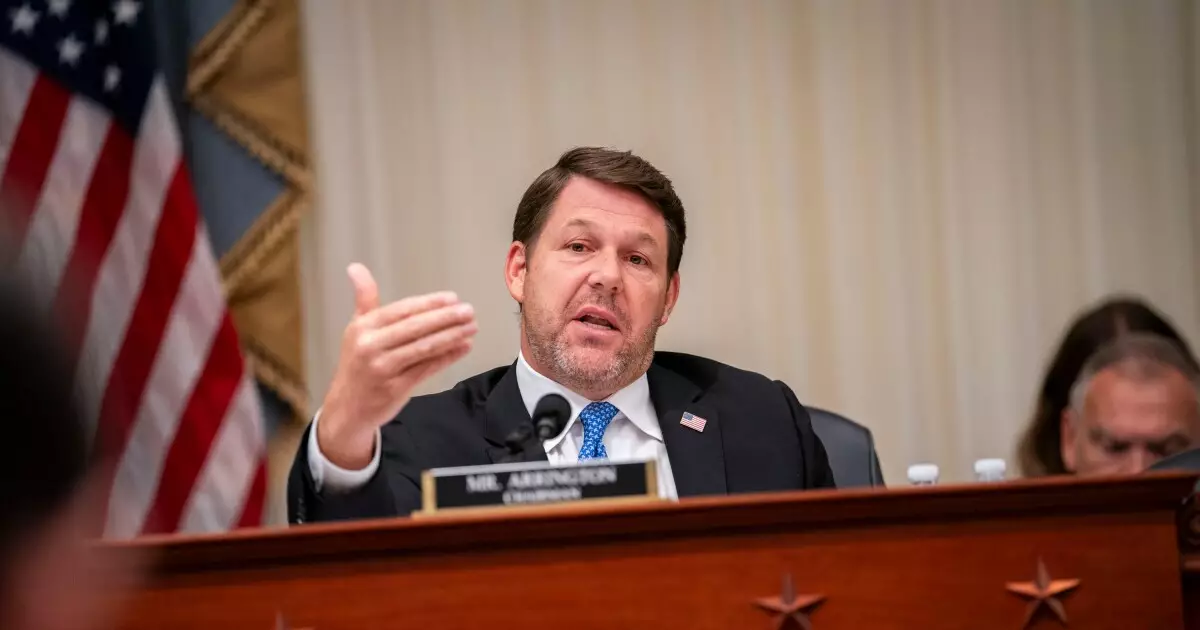The recently passed fiscal 2025 budget resolution is projected to be an explosive catalyst in U.S. economic policy, unfortunately not in a positive sense. Though positioned as a vehicle for tax cuts and spending reductions, the details divulge a disturbing trend towards fiscal irresponsibility. The budget, sanctioned by the Senate, aims to extend the Tax Cuts and Jobs Act (TCJA) while allowing for significant increases in the federal deficit—up to $5.7 trillion over the next decade, an ambitious forecast that raises immediate alarm bells for fiscal conservatives and pragmatic liberals alike. While tax cuts can invigorate economic growth, the absence of enforceable offsets creates an unsustainable economic model that invites future financial pitfalls.
A Dangerous Precedent in Budgeting
The methodology spearheaded by the Senate, employing a current policy baseline, is particularly concerning. By zeroing out the costs of extending the TCJA, lawmakers are essentially operating under a mirage of fiscal stability. This not only distorts budgetary realities but also negates the importance of thoroughly addressing the long-term implications of tax cuts. It sets a precarious precedent, laying the groundwork for further fiscal irresponsibility that could drown future generations under a mountain of debt. The sheer audacity to ignore enforceable offsets reflects a dereliction of duty among those tasked with ensuring the country’s financial integrity.
Resistance from Within the Ranks
The unveiling of this budget resolution has not gone unnoticed, triggering backlash from conservative lawmakers who argue that the Senate’s version is a diluted shadow of the original House bill. A mere $4 billion in cuts hardly suffices when contrasted with the House’s proposed minimum of $1.5 trillion. The discrepancies in proposed spending reductions have opened a schism within the Republican ranks, further complicating the passage of this contentious resolution. With House leaders facing the grim reality of a narrow majority, the threat of failed negotiations looms large. The party can afford to lose no more than three votes if they hope to push this through, which places immense pressure on legislative cohesion.
The Municipal Market Dilemma
For those invested in the municipal market, the proposed potential limitations on municipal bond tax exemptions are alarming prospects. Facing heightened debt ceilings without the protective cushion of tax exemptions could lead to unfavorable outcomes for public finance. As legislators grapple with growing economic concerns, the idea of offsetting spending by curtailing municipal tax privileges is disastrous for local governance and infrastructure funding—a form of economic collateral damage that directly impacts communities relying on these bonds for essential services.
Pitfalls of Bipartisan Politics
While bipartisan agreements often herald the promise of compromise, they can also lead to compromises that dilute effective fiscal policies. The Senate’s bill exemplifies how the urge to secure votes can sometimes produce outcomes that may not serve the best interests of the nation. The challenges posed by reconciling both House and Senate proposals underscore the need for a principled approach rather than one shaped by political expediency. Liberal values centered on fiscal responsibility do not solely hinge on cutting taxes; they equally emphasize the necessity for a balanced budget and real structural reforms.
Urgency Amid Uncertainty
The looming debt limit, the pressing need for border security resources, and potential tax increases on working families indicate that time is truly of the essence. Speaker Mike Johnson’s “Dear Colleague” letter is an earnest call to arms, but one must question if it truly resonates with enough resolve among lawmakers. The stark fact remains that the current proposal could lead to an economic nightmare, favoring temporary political gains over sustainable solutions. It’s a moral obligation for Congress to do better than simply appease their constituents’ immediate desires—real leadership requires fortitude to face the long-term challenges head-on.
The fiscal landscape of tomorrow pivots on the decisions made today. Thus, if this budget resolution passes as is, the fallout may manifest in surprising forms—hollowed-out services, unaddressed social issues, and a generational shift toward a more burdensome economic reality. The reverberations of these financial choices will be felt far and wide, and it is crucial that Republicans act with prudence above party loyalty.


Leave a Reply